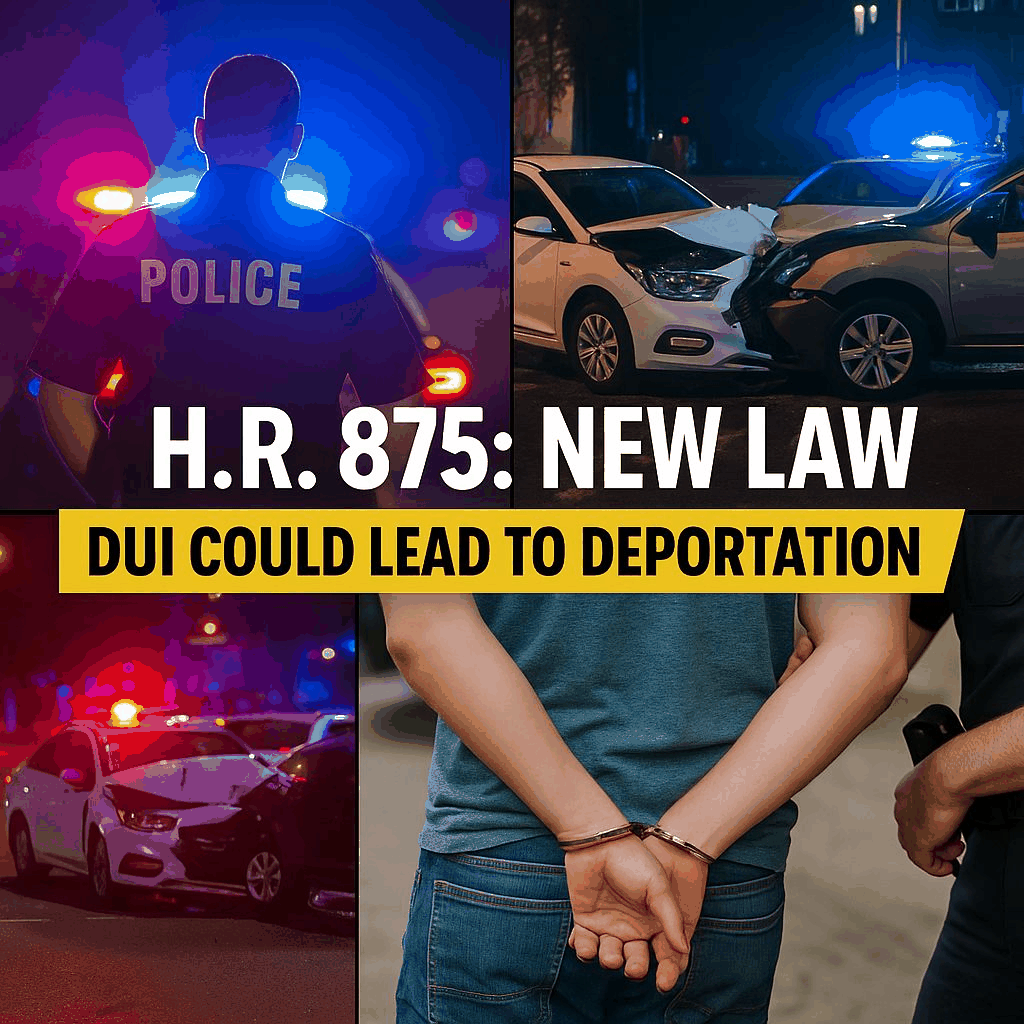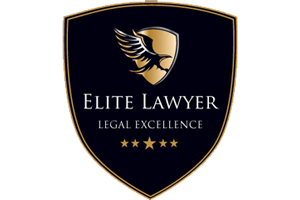- Free Consultation: (213) 251-5533 Tap Here to Call Us
H.R. 875: The “Jeremy and Angel Seay and Sergeant Brandon Mendoza Protect Our Communities from DUIs Act of 2025” — New Immigration Consequences for DUI convictions

Published October 24, 2025 by Thomas M. Lee
H.R. 875, officially titled the Jeremy and Angel Seay and Sergeant Brandon Mendoza Protect Our Communities from DUIs Act of 2025, represents one of the most significant proposed changes to immigration enforcement in recent years. Introduced by Representative Barry Moore of Alabama, the bill seeks to amend the Immigration and Nationality Act (INA) to make a single DUI conviction, or even an admission of DUI conduct, a categorical ground for inadmissibility and deportability. The measure passed the House of Representatives on June 26, 2025, by a vote of 246–160, and now awaits action in the Senate Judiciary Committee. The White House has publicly endorsed the bill, signaling executive support for its passage.
Under existing law, a DUI is not automatically a removable offense. Current immigration jurisprudence generally requires aggravating factors—such as multiple DUIs, driving without a license, or serious injury—to create deportability concerns. H.R. 875 would eliminate that nuance. The bill proposes to amend Section 212(a)(2) (8 U.S.C. §1182(a)(2)) and Section 237(a)(2) (8 U.S.C. §1227(a)(2)) of the INA to establish DUI as a standalone ground of both inadmissibility and deportability, regardless of whether the offense is classified as a misdemeanor or felony under state law.
For inadmissibility purposes, H.R. 875 introduces a new Section 212(a)(2)(J), rendering any noncitizen who is convicted of, or admits to committing, the essential elements of a DUI or DWI offense inadmissible. For deportability, the bill adds Section 237(a)(2)(G), which applies to any noncitizen convicted of DUI or DWI, whether alcohol- or drug-related. The statutory language explicitly states that these provisions apply “without regard” to how the underlying jurisdiction classifies the offense. In practical terms, a single misdemeanor DUI conviction—or even an admission during a consular interview—could render an individual inadmissible or deportable.
The implications of these amendments would be profound. Immigrants applying for adjustment of status, visa renewals, or lawful permanent residency could be denied benefits based solely on a single DUI incident. Lawful permanent residents traveling abroad could face inadmissibility issues upon reentry. Even individuals with decades-old DUI convictions could be affected, as the bill does not include a temporal limitation or a grandfathering provision. The text also fails to establish a discretionary waiver, raising serious due process and proportionality concerns. Critics argue that the law could separate families and deport long-term residents for conduct that previously carried no automatic immigration consequence.
Proponents of H.R. 875 maintain that the measure enhances public safety and closes perceived loopholes that allow dangerous drivers to remain in the United States. They point to victims like Jeremy and Angel Seay and Sergeant Brandon Mendoza as justification for the bill’s strictness. Opponents, including many immigration lawyers and civil rights organizations, counter that it represents an overreach—treating a low-level misdemeanor as the functional equivalent of an aggravated felony. They warn that the absence of discretionary relief could result in the deportation of individuals who have rehabilitated, completed treatment, or otherwise reintegrated into society.
If enacted, H.R. 875 would fundamentally reshape the intersection between criminal and immigration law, often referred to as “crimmigration.” Attorneys representing noncitizen clients must immediately begin screening for any DUI history, including arrests, convictions, or admissions. Clients should be advised against unnecessary international travel until the legislative outcome becomes clear. Criminal defense attorneys handling DUI cases must also coordinate closely with immigration counsel to ensure that plea agreements and factual admissions do not inadvertently create inadmissibility or deportability exposure.
For now, H.R. 875 remains a bill—not yet law. It must pass the Senate and receive the President’s signature before taking effect. However, given its bipartisan momentum and executive support, practitioners should assume a high likelihood of enactment and prepare clients accordingly. Lawyers should also watch for potential litigation if the law is applied retroactively, particularly under the constitutional doctrines governing due process and ex post facto penalties.
H.R. 875 marks a stark policy shift. Where immigration law once weighed rehabilitation, discretion, and proportionality, this bill advances a zero-tolerance model—one in which a single DUI may end a person’s lawful stay in the United States. For practitioners, awareness, early intervention, and coordination between criminal and immigration defense are now indispensable.
Legal Disclaimer:
This article is provided for informational and educational purposes only and does not constitute legal advice. Reading or relying on this content does not create an attorney-client relationship. Immigration laws and proposed legislation may change rapidly, and individual circumstances vary. Call Attorney Thomas M. Lee at (213) 251-5533 for a free legal consultation about your immigration and employment rights.








